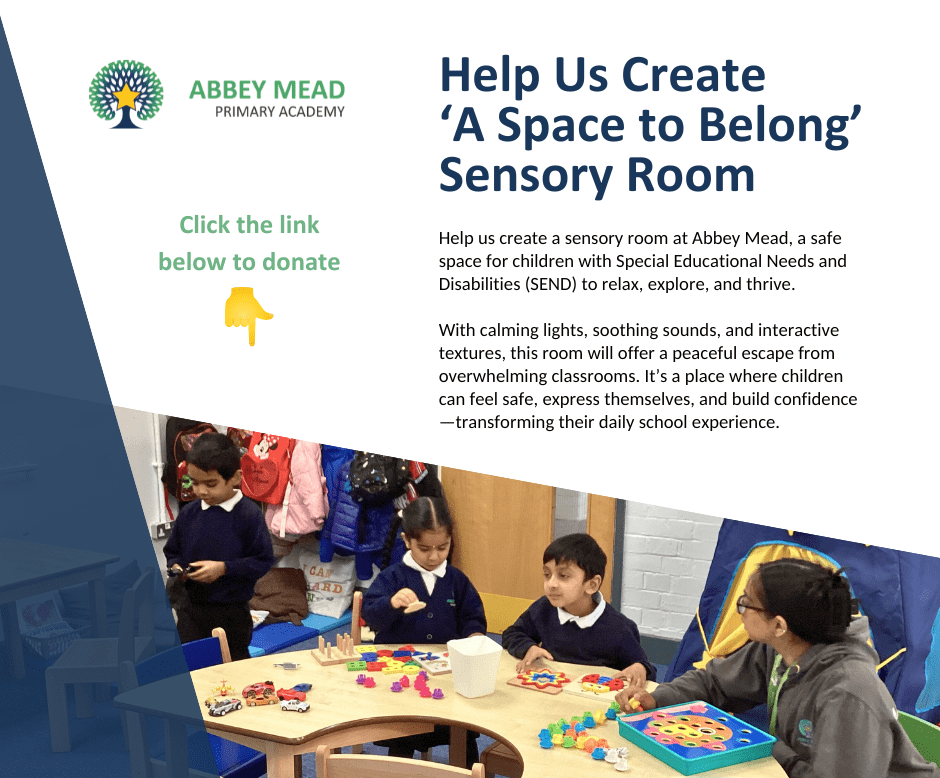Promoting Fundamental British Values at Abbey Mead Primary Academy
In accordance with The Department for Education, we aim to actively promote British values in our school to ensure young people leave school prepared for life in modern Britain. Pupils are encouraged to regard people of all faiths, races and cultures with respect and tolerance and understand that while people may hold different views about what is ‘right’ and ‘wrong’, all people living in England are subject to its law.
The Key British Values are:
Democracy
Rule of Law
Individual Liberty
Mutual Respect and Tolerance
We actively promote British values
At Abbey Mead, we instil in our children the strength of character to make informed choices and a positive contribution to society. Through our PSHE curriculum, we focus on key concepts of consent and the principles of the Operation Encompass curriculum.
We openly challenge pupils, staff, visitors or parents who express opinions contrary to British values
Democracy – what do we do?
- Class voting for the election of school councillors at the start of the year;
- Provide pupils with a broad general knowledge of, and promote respect for, public institutions and services;
- Teach pupils how they can influence decision-making through the democratic process;
- Taught through assemblies and our school curriculum;
- Encourage pupils to become involved in decision-making processes and ensure they are listened to in school;
- Help pupils to express their views;
- Model how perceived injustice can be peacefully challenged;
- Through the promotion of Oracy, pupils are provided with opportunities to discuss and debate live issues
- School council visit the Houses of Parliament.
Rule of law – what do we do?
- Ensure school rules and expectations are clear and fair;
- Class rules and celebration of adhering to these rules;
- Help pupils to distinguish right from wrong;
- Help pupils to respect the law and the basis on which it is made;
- Help pupils to understand that living under the rule of law protects individuals;
- Provide pupils with opportunities to discuss and articulate the Equality Act 2010;
- Annual visit from police and NSPCC to discuss children’s rights and the role of law.
Individual liberty – what do we do?
- Support pupils to develop their self-knowledge, self-esteem, self-confidence through the promotion of character muscles;
- Encourage pupils to take responsibility for their behaviour, as well as knowing their rights;
- Model freedom of speech through pupil participation, while ensuring protection of vulnerable pupils and promoting critical analysis of evidence;
- Challenge stereotypes;
- Implement a strong anti-bullying culture;
- E-Safety units of work are taught throughout school and parents and staff receive training on these.
Mutual Respect and tolerance of different cultures and religions– what do we do?
- Explore the protected characteristics of the 2010 Equality Act to promote respect for individual differences and to actively challenge stereotypes;
- Use well considered assemblies to explore critical news events and live issues (e.g. Human rights violations in Qatar, Black Lives Matter, etc);
- Explore positive role models through our topics who reflect the protected characteristics of the 2010 Equality Act;
- Ensure our curriculum is rich in culture and diversity so as to reflect our school’s rich demographic make-up.
- Consciously shaped our curriculum so that it is reflective of different viewpoints;
- Challenge prejudicial or discriminatory behaviour;
- Organise visits to places of worship (one annually per year group);
- Years groups perform a celebration assembly for Diwali, Eid and Christmas;
- Recognise and celebrate a range of cultural and religious events (EDI Calendar)
- Our RE curriculum ensures that our children have a good understanding of a range of religious beliefs and customs;
- Help pupils to acquire an understanding of, and respect for, their own and other cultures and ways of life;


 Learning Every Minute of Every Day
Learning Every Minute of Every Day